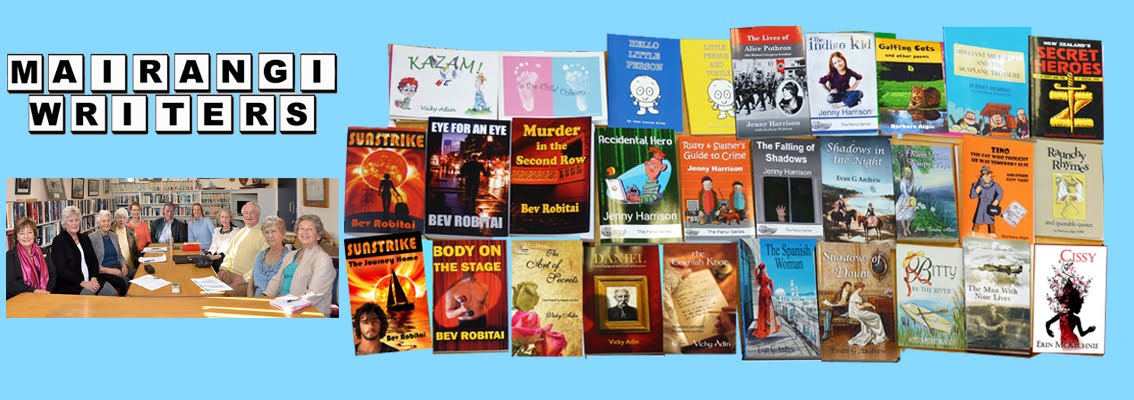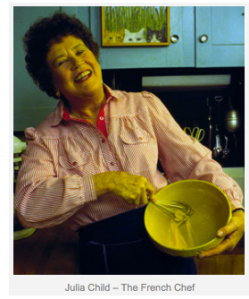- Your favourite author?
- Your favourite novel?
- Your favourite classic novel?
- What novel would make a good movie?
- What novel would you most like to have written?
- Worst/best thing about being a writer?
- Two writers who inspired or influenced your writing?
- The three words to describe your own writing are …?
- Do you read widely (fiction only) or do you prefer to stick to one genre?
- What do you read for guilty pleasures?
- What are you reading right now?
Search This Blog
Friday, 27 April 2012
Writers' Blog quiz
Here are some questions to answer here in the comments and repost on another blog, or email to a friend. Keep the blog tag moving and share it with the world!
Friday, 20 April 2012
Guest post from Kristen Lamb, USA writer
This post is reblogged from Kristen Lamb's site (link below). She runs an excellent networking group for writers called WANA - We Are Not Alone, and she has her finger firmly on the pulse of publishing today.
What Mascara, Thai Food & Julia Child Can Teach Us About Social Media Success
Sorry. Traditional marketing cannot give the Hunger Games Effect. I didn’t make the rules. Anyone in publishing more than a minute will tell you that the only way to created the Harry Potter Effect or the DaVinci Code Effect—which is a mass mobilization of the fat part of the bell cure—is 1) good book and 2) word of mouth. Ads, commercials, trailers, mailers, bookmarks have minimal effect on the overall sales numbers and we will talk about why in a moment.
Sometimes it seems that life would be easier if traditional marketing could sell books because then we could pay for a nice book trailer and program an automated platform to blitz out “commercial” on every social site. Yet, the fact remains that books are not tacos or car washes.
So What’s a Writer to Do?
Too many writers are in search of what I call “the White Stag”—the voracious reader who devours books like candy. WHY? How many books can you write? Who cares if someone only reads two books a year if one or both are OUR books?
Writers spend far too much time marketing to a very small segment of the population that defines themselves as “readers.” Too much book marketing is happening in places where we are least likely to find most people—book stores, author blogs, book review sites, reader forums. And, you know who makes up the most of these “reader” groups?
Other writers.
The Family Tree Needs Branches
Thus, not only are we marketing to one of the smallest sections of society—the self-professed avid reader—but we are also spending far too much time marketing to each other. Writers get on Facebook and Twitter and hang out with each other, befriend each other and talk to each other. They blog about writing and talk about writing…at the expense of talking to potential readers.
Make no mistake, writers are awesome. I spend most of my time talking to writers. Yet, in fairness, you guys are my demographic. Ah, but hold on. Calm down. Writers are incredible, kind and talented. We should befriend writers. They are our professional core and our support network.
The Core Mistake
Yet, where the mistake happens is that fellow writers are our comfort zone. We cannot mistake our professional network for our reader demographic. Will writers make up part of our readership? Yes…but they are not ALL of our readership.
We MUST reach out to fresh blood and bring new readers into the family. If we don’t our platform becomes almost inbred, then starts playing the banjo and firing a shotgun in the air and it’s all downhill from there.
Is this your author platform?
Too many writers spend too much time talking to a small group at the expense of the big picture.
The Only People Who Read Are Avid Readers…um, No
Now, another HUGE misconception many writers have is that, unless someone professes to love reading that they, therefore, do not read at all. Major misconception. Avid readers simply need far less convincing because they already love to read.
Think of it this way.
Why traditional marketing works for other products is the consumer already wants what the market has to offer. Traditional marketing is merely there to help us choose from the options. So, if I make mascara that has the power to look like false eyelashes, then advertising in a woman’s magazine is a pretty safe bet.
Women already wear mascara. Most modern Western women, do NOT need to be convinced to wear makeup. They already do. So the fancy ad that uses Mila Jovovich and a crap load of Photoshop will offer an edge in sales and will sell mascara.
The tricky part about selling books is this is also how traditional marketing works for books. Traditional marketing only speaks to those people who love
All the ad does is help a self-professed reader choose between all the choices. Yet, convincing this demographic to read is not where the magic happens. Selling books to only self-professed readers will not create the Twilight Effect.
Thus, we as writers have the daunting task of convincing a demographic that our book is worth forgoing 12 hours of undivided attention they could be using on something else they already know they love, like watching Glee or hitting aliens with plasma grenades.
We have to convince consumers to part with money for an activity they do not believe they enjoy. THIS is why traditional marketing fails to sell books. We must tap into that outside group of people to get momentum. Ah, but when we do, watch out! It will hit critical mass and then BOOM!
The Fat Part of the Bell Curve is Essential to Hitting the Tipping Point
An example…
If I am from Thailand and I grew up eating spicy stuff all my life, then likely I will seek out Thai food restaurants. What if, however, I happen to open a Thai food restaurant in Arlington, TX? In Arlington, there happens to be a lot of people from Thailand.
Ah, but the problem is that with a large population of Thais comes a larger presence of Thai food restaurants. If all of them are catering to other Thai people and offering all kinds of authentic cuisine, then that is very steep competition. How can my little Thai restaurant survive?
I have to think differently.
I can go after the same patrons as all of my competition (fellow Thais), OR I can seek to introduce an exotic food to outsiders who don’t already believe they love Thai food. If I can convince Joe American to just try something different once…then my food can make the fan.
Joe will see that MY Thai restaurant has awesome food, and he will not only be loyal (since he is still afraid that other Thai restaurants will give him heartburn), but he will also tell all of his Joe American pals who don’t believe they like spicy stuff either.
Joe’s opinion will carry more weight with this new population of potential patrons. Why? Well, it’s nothing shocking for a Thai person to love Thai food. BUT, for Joe American who normally lives off hamburgers? His opinion is gold. Joe and his pals likely will still believe they hate Thai food….but THIS restaurant–MY restaurant–is different. My restaurant is that perfect choice for a date night or when you just want something different.
It just takes some creativity when defining our demographic. Put another way.
What Julia Child Can Teach Us About Social Media
Why was Julia Child so successful? She made fine French cuisine accessible to average people. See, the other French chefs of her time defined their demographic far too narrowly. They all targeted an elite group of foodies. Julia, however, saw her demographic as anyone who could masticate food and who wanted to enjoy the experience.
If you liked good food and maybe liked to cook, YOU were her demographic. Guess what? That was a demographic of hundreds of millions. The result? Julia Child became a legend. She didn’t patronize regular people. She believed that just because they hadn’t grown up in high society, didn’t mean they wouldn’t embrace fancy French cuisine and love it if given access.
Too many writers narrowly define their demographic as those people who say they love to read books and they patronize non-readers.
Yet, what is our REAL demographic? Anyone in need of informing or entertaining. THAT demographic is MASSIVE and when we writers mobilize THAT sector of society—the fat part of the bell curve—this is when literary history is made.
The DaVinci Code, the Harry Potter Series, Twilight, Tuesdays with Morrie, Water for Elephants, The Help all ignited a passion for stories in people who normally would not have defined themselves as avid readers.
Nothing Great Happens in the Comfort Zone
My advice to you guys? Break out of the comfort zone and start tapping into larger networks that can become readers. Go after new blood. This is one of the reason my blogging classes are very different. They are designed to teach writers to blog in ways that will connect outside that circle of comfort. I also have some tips in WANA for those of you who need some suggestions.
So what are your thoughts? What ways have you used to branch out from talking only to other writers? What suggestions or tips might you offer? Do you think you need help getting out of your comfort zone?
Read more from Kristen Lamb on her blog here http://warriorwriters.wordpress.com/
Thursday, 19 April 2012
A great site to check out.
http://www.indiesunlimited.com/2012/03/29/ewww-a-writer/ And we're mentioned among the comments. Go look!
Friday, 13 April 2012
Musical notes...
Jenny Harrison writes…
I’ve started classical guitar lessons again. I used to play
in the 80s and 90s but immigrating to a new country meant that my guitar lived
in the back of a cupboard for fourteen years. Then impulse caused me to find a
teacher (young enough to be my daughter!) and start all over again.
As you’ll see from my “mug shot” I’m no spring chicken. I'm not trying to manage a Zimmer frame and a guitar case, not yet
anyway, but it was certainly easier twenty-some years to remember where to play
D# , which is the A
string (forget about the G-string!) and what allegretto means. (The lesson here
is that age is no barrier to anything but bungee jumping.)
Being a writer I’m wondering how the rules pertaining to music
apply to writing. And here’s what I thought:
·
A previous guitar teacher recommended that every
day I at least take my guitar out of the case and touch the strings. Playing a
few notes would be better, of course. My writing is much the same. Open the
file and at least read through what I wrote yesterday. Add something, anything
– even if I take it out tomorrow, at least I’m writing.
·
Finger exercises such as scales on the guitar
are useful for warming up the digits. One particular exercise is called the
Crab Walk. It exercises not only the fingers but also the brain. Julia Cameron
in her wonderful The Artist’s Way
makes much of “morning pages” and that is not a bad idea. Writing something
every morning can be like finger exercises for the mind.
·
There’s a difference that I’m only beginning to
recognise between playing notes on the guitar and playing music. It has
something to do with soul or quende or being ‘in the zone’. I can play a bar or
two and then suddenly something begins to sing and I know I’ve touched the soul
of the music. Whatever it is you’re writing, see if there’s something in it
that sings, two words that echo, a sentence that flies. Getting into the zone
is where words become music, where semibreves become magic.
·
It’s taking a long time to get anything I play
on the guitar to sound good. So I have to be persistent. I have to play every
day and expect setbacks. Now, doesn’t that sound just like writing?
Above all, for both guitar and
writing - it’s practice, practice, practice.
Jenny Harrison
Friday, 6 April 2012
Type 'The End' and Relax
Well, dear readers, what an
interesting time an author has as he or she leans back in the chair and shouts
'Hurrah, I have finished the book!’
Such joy! Why it has been
compared in literary circles to the fulfilment of giving birth. But while I
felt great joy at this moment of satisfaction, as if a huge weight had fallen
from my shoulders (if not my stomach), the real work has only just begun, (as
the song says!)
Off for the editing, of which
I feel quietly composed, but then there’s the title, the cover, the print, the
layout, the design, the size, the synopsis, the media release, the blurb, the
sales lists, the library lists, the launch dates, the invitations, the
publicity, the promotional aids, the book stores, and on and on and on.
Head down bottom up, bravely
we writers tackle all the above, if not with quite the enthusiasm of writing
the book, at least with the knowledge that this is 'grist for the mill' and it
will all be alright in the end, and why, HOLLYWOOD might come calling with a
lucrative book buy, and... fame at last! Well, at least appreciation!
In a state of extreme
exhaustion after recently contemplating all that was before me, I came across
an old friend down the road. 'You do look tired,' he said to me solicitously, '
Been burning the candle at both ends?'
'Not really,' I answered
modestly. 'I have just finished writing my book.'
'Really,’ he answered
brightly, 'Well, that's good. What new book are you getting started on writing
now?'
I told him in no uncertain
terms where I would like to shove my new book, IF I can ever find the energy
and time to write one, and left him scratching his head at the idiosyncrasies
of authors who sit idling their time away at the computer all day. Ah well,
tomorrow is another day!
Evan Andrew
(Proud father of Shadows of Doubt, due in a couple of
weeks.) Ed.
Subscribe to:
Comments (Atom)


